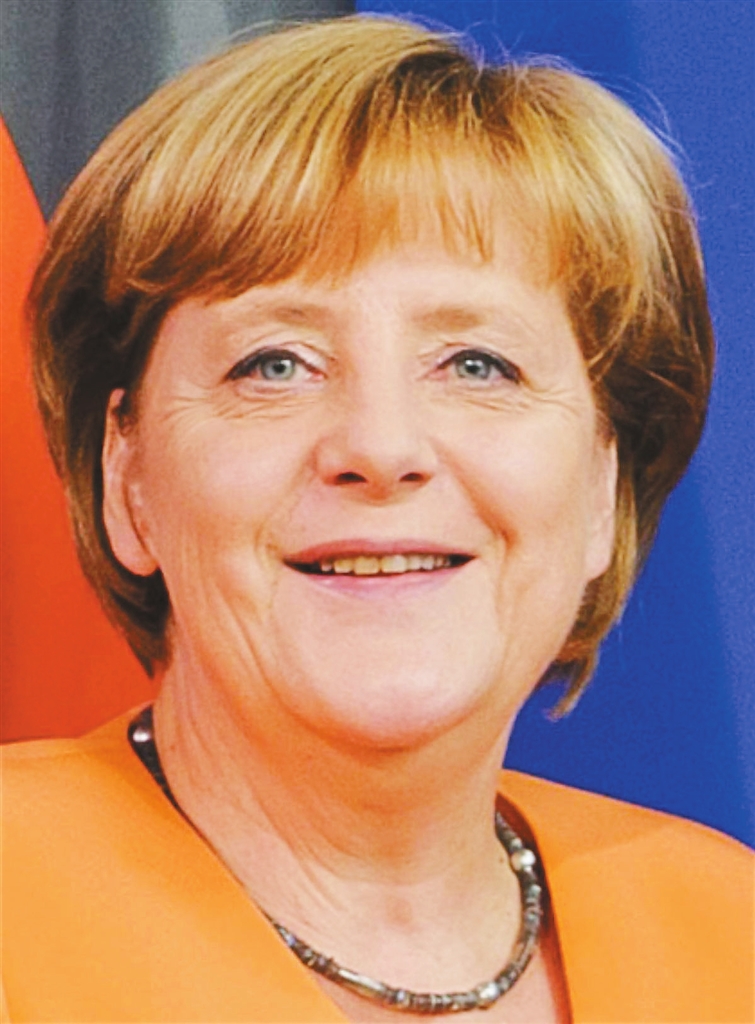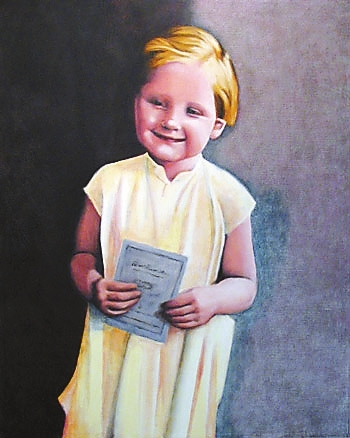

SCHOOLGIRL Angela Kasner never wanted to draw too much attention to herself as she grew up in the East German town of Templin, according to her math teacher, Hans-Ulrich Beeskow. But this week the woman she grew into became the second-longest serving chancellor in modern Germany, overtaking one of the greatest figures in post-war European history. Angela Merkel’s 5,144th day in the chancellery pulled her in front of Konrad Adenauer, the founder of her Christian Democrat party (CDU). Merkel has also topped Forbes’ list of the world’s most powerful women for the ninth year running this year, for standing up to U.S. President Donald Trump and for allowing over a million Syrian refugees into Germany. Merkel, who was sworn in Nov. 22 2005, now only trails another giant of the CDU, Helmut Kohl. But the 65-year-old confirmed last year that she will retire from politics at the next election, saying “this fourth term is my last as chancellor of Germany. I will not run again as CDU candidate for chancellor in the 2021 elections, nor as an MP.” Known as “Mutti,” meaning “mom,” due to her steady style and air of “mother-knows-best” competence, Merkel seems eternally hard to pin down. She’s a liberal hero to some, thanks to her approach to the refugee crisis and to world leaders like Trump. But on the other hand, she’s against gay marriage and has supported a burqa ban in the past. The contradictions pile up around the German chancellor. Born in Hamburg, West Germany, the daughter of Protestant pastor Horst Kasner and his wife Herlind, Merkel moved east with her family in 1954, a few weeks after she was born. It was a time seven years before the Berlin Wall went up. The Kasner family lived on the edge of Templin, in a sheltered housing complex for disabled people run by a Christian foundation, with a sweeping view of farmland. The young Angela went to the Goethe-Schule, where Beeskow, 74, gave her special tuition for her entry into the Mathematical Olympiad. “She was gifted, exceptional among the girls in that she kept up completely with the boys. She was eager, determined, but never unhealthily so. It was ambition, but healthy ambition. She never made snap decisions. It was always with prudence, circumspection.” At school, she excelled in Russian as well as maths. She went on to study physics at the University of Leipzig and earned her doctorate in quantum chemistry before working as a researcher at the Academy of Sciences in East Berlin. Her first marriage, to physics student Ulrich Merkel, ended in divorce after five years. She married Joachim Sauer, a professor of physical and theoretical chemistry who works at the Humboldt University in Berlin, in 1998. Sauer has kept a low profile – in 2005 he chose not to attend his wife’s first inauguration as chancellor. Merkel’s home life with her second husband is also fiercely private — and has been presented as so humdrum it doesn’t merit any attention. Often considered the most influential European head of state, her international presence has been built on the foundations of extended domestic success. She entered into politics in 1989 after the Wall came down. She joined the center-right activists of the Democratic Awakening party and her first job was unpacking boxes of new computers and setting them up for the office. A year later she became the party’s spokeswoman, and she renamed the party the Allianz für Deutschland, or Alliance for Germany. In the same year, she won a seat in the Bundestag. Since then, she rose swiftly through the ranks of the party — serving as a minister for women and youth, and later the environment — before being chosen as its leader at the turn of the millennium, in April 2000. Her uniform of boxy blazers and sensible shoes was born when she was environment minister: Merkel said that people were looking at her shoes instead of listening to her — so she took outfits out of the equation. Kohl called her his “Maedchen,” or little girl, up until she publicly called for his resignation in 1999 after he was caught rewarding party funds to his friends. Five years after her elevation to the CDU leadership, Merkel steered the party to success in the 2005 federal election, placing a woman at the nation’s helm for the first time. She had “always been hiding her political talent,” said Jacqueline Boysen, a Merkel biographer. “She was underestimated,” Boysen added. “Only one person really knew she would develop this aptitude, it was herself.” Although Merkel’s path to Germany’s highest office was striking, many argue her approach since has been anything but. Instead, her leadership has been defined by calm and continuity. “She’s not doing it to satisfy herself, but [is instead] driven by a sense of duty. She doesn’t want to leave the stage when the play isn’t over,” said Boysen. A cool-headed pragmatist and with an analytical scientist’s mind, Merkel has developed a leadership style that merited its own verb: “merkeln.” It basically means kicking the can down the road before making a firm decision. But this wait-and-see approach and canny ability to sense the mood of the nation has served her well over the past years. At a recent podium interview at a Handelsblatt event, Merkel said: “Never try to change your negotiating partner’s mind … but find and exploit the wiggle room within their thinking.” “Patience is the secret of Merkel’s success,” according to Ralph Bollmann, author of “The Germans, Angela Merkel, and Us.” “She’s much more patient than any other politician in Germany, in Europe, in the world.” “People often accuse me of not acting fast enough,” she said, in a BBC documentary. “That I let things go on too long. For me it’s important I deliberate all options ... running through scenarios, and not simply theoretical experiments in my head.” “I am, I think, courageous at the decisive moment,” she said, according to a 2007 biography. “But I need a good deal of startup time, and I try to take as much as possible into consideration beforehand.” Critics say she is overly pragmatic and lacks a driving ideology. They point to her reversal on nuclear power — Merkel has vowed to phase out Germany’s nuclear power plants by 2022 despite earlier undoing a preceding government’s decision to end their use — and allowing an open vote on the legalization of gay marriage, something she has publically opposed, as evidence of this. Boysen believes this is a by-product of her upbringing and one that has been beneficial to her leadership. “Merkel takes decisions after collecting facts and is not guided by ideology. She stays calm and modest, she doesn’t forget the first 35 years of her life,” she said. Outside of work, Merkel is a fan of soccer. She befriended the victorious German national team during their journey to winning the World Cup in 2014. The chancellor is a talented chef. She likes to bake at home and is occasionally snapped in local Berlin supermarkets. Locals leave her in peace, shopkeepers normally refuse to say what she bought. Merkel has also retained one food-related habit from her upbringing in shortage-prone East Germany. In an interview with German magazine Superillu, she said, “I still buy something as soon as I see it, even when I don’t really need it. “It’s a deep-seated habit stemming from the fact that in an economy where things were scarce, you just used to get what you could when you could.” Merkel has said that she often goes without rest and can function on only four hours of sleep. She said she catches up on sleep on the weekends. “I have camel-like abilities, an ability to save things up — and afterwards I have to fill up again,” she said. Merkel said she is used to sticking to her typical routine. On Nov. 9, 1989, the night the Berlin Wall fell, Merkel went to a sauna and then out for beers as she did every Thursday night, in stark contrast to the way most people in Berlin reacted that night. “The most extraordinary thing about Merkel is that… we don’t know who she is at all,” said Hans Kundnani, senior research fellow at Chatham House. “She’s completely opaque.”(SD-Agencies) | 
